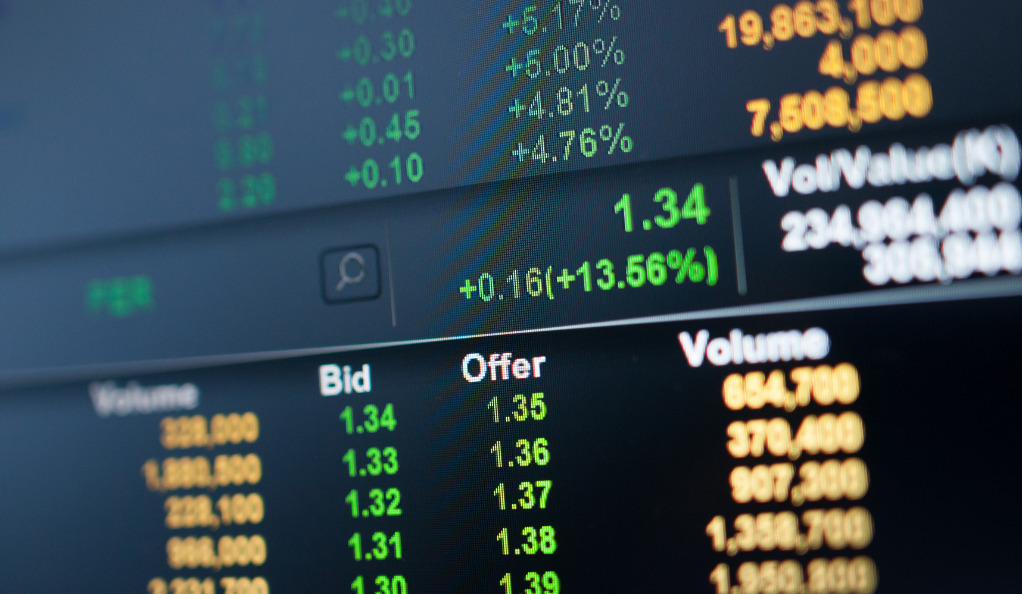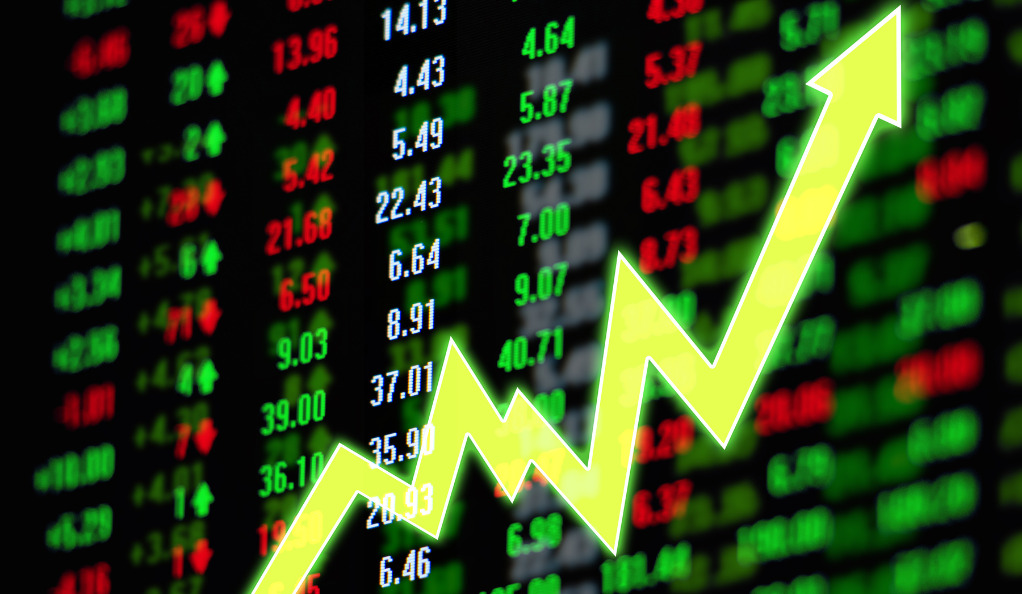Introduction
In the ever-evolving landscape of financial markets, the occurrence of certain events can cause dramatic fluctuations in stock prices, making them vital for investors to comprehend. Market movers, as they are known, are events, news, or developments that have the power to influence the direction of financial markets and impact the value of individual stocks. Understanding these market movers is essential for making informed investment decisions, and this article aims to shed light on their significance and potential effects on the stock market.
Contents
What are Market Movers?
Defining Market Movers
Market movers are the catalysts behind market volatility. They can be either positive or negative events, but what distinguishes them is their ability to trigger significant shifts in stock prices. Examples include earnings reports, mergers and acquisitions, economic indicators, geopolitical events, natural disasters, and actions taken by central banks like the Federal Reserve.
Importance of Identifying Market Movers
Identifying market movers is crucial for investors seeking to stay ahead in the financial markets. By understanding the potential impact of these events, investors can strategically position themselves to seize opportunities or safeguard their portfolios from unforeseen risks. Properly identifying and analyzing market movers can enable investors to make data-driven decisions and minimize emotional reactions to market fluctuations.
Types of Market Movers

Earnings Reports
Earnings reports are periodic financial statements released by publicly traded companies, detailing their financial performance. Positive earnings surprises, where a company’s earnings exceed market expectations, can trigger a surge in its stock price. Conversely, disappointing earnings may lead to a sharp decline. Investors pay keen attention to earnings reports as they provide insights into a company’s profitability and growth prospects.
Merger and Acquisition Announcements
When companies announce mergers or acquisitions, it can significantly impact their stock prices. A well-received announcement of a merger or acquisition can cause both the acquiring and target companies’ stocks to rise. On the other hand, uncertainty or negative sentiment surrounding such announcements can lead to declines. These events may also trigger speculations about potential synergies and long-term growth prospects.
Economic Indicators
Economic indicators, such as gross domestic product (GDP) growth, unemployment rates, and inflation figures, play a vital role in influencing the stock market’s overall performance. Positive economic indicators can boost investor confidence, leading to higher stock prices. In contrast, negative economic data can create uncertainty and cause market sell-offs.
Geopolitical Events
Geopolitical events, such as political instability, trade tensions, or international conflicts, can significantly impact financial markets. These events create uncertainty, affecting investor sentiment and leading to fluctuations in stock prices. The stock market may experience sharp declines during times of geopolitical tension, while resolutions or positive outcomes may result in rebounds.
Natural Disasters
Natural disasters, such as hurricanes, earthquakes, or pandemics, have far-reaching consequences on various sectors of the economy. Industries directly affected by these events, such as insurance, construction, or healthcare, may experience significant shifts in stock prices. For instance, insurance company stocks may plummet following a hurricane, while companies providing reconstruction services may see their stock prices surge.
Federal Reserve Actions
Decisions made by the Federal Reserve, including changes in interest rates or monetary policies, can have a considerable impact on financial markets. Investors closely monitor these actions as they can influence borrowing costs and overall market liquidity. Interest rate hikes, for example, can lead to lower stock prices as borrowing becomes more expensive for businesses and consumers.
The Butterfly Effect: How Small Events Can Create Big Waves
Understanding the Butterfly Effect
The butterfly effect is a fascinating concept derived from chaos theory. It suggests that small events, such as the flapping of a butterfly’s wings, can have far-reaching and unpredictable consequences in complex systems like financial markets. In the context of the stock market, seemingly minor news or developments can trigger substantial movements in stock prices.
Social Media and Market Volatility
In today’s interconnected world, social media platforms have become powerful tools for disseminating information rapidly. Tweets or posts from influential individuals or organizations can create a surge in stock prices, leading to a phenomenon known as “social media-driven market volatility.” While social media platforms offer new ways to access market information, they also introduce new challenges, such as misinformation and speculative trading.
Investors must be cautious when reacting to social media-driven market movements and instead rely on comprehensive research and fundamental analysis to make well-informed decisions.
Case Studies: Events and Their Effects on Stocks
- Case Study 1: Earnings Beat
A real-life example of a market-moving event can be seen in the earnings report of XYZ Corporation. When XYZ Corporation reported better-than-expected earnings for the quarter, its stock price soared by 15%. The positive news reassured investors about the company’s financial health and growth prospects, prompting more significant buying activity. Investors who were aware of the earnings announcement and its potential impact were able to capitalize on this opportunity.
- Case Study 2: Trade War Escalation
During a period of escalating trade tensions between two major economies, the stock markets experienced a steep decline, with major indices falling by over 10% in a week. Investors feared the potential impact of tariffs on global trade and the potential for reduced corporate profits. This case study illustrates how geopolitical events can quickly turn investor sentiment negative and lead to significant sell-offs in the market.
- Case Study 3: Natural Disaster Impact
Following a devastating hurricane that hit a coastal region, insurance companies’ stocks plummeted due to the anticipated surge in claims. Conversely, construction material suppliers experienced a surge in stock prices as rebuilding efforts gained momentum. This case study demonstrates how natural disasters can have disparate effects on different sectors, causing volatility in the stock market.
Conclusion
In conclusion, market movers are events, news, or developments that significantly impact stock prices and influence financial markets. Investors must understand the various types of market movers, such as earnings reports, mergers and acquisitions, economic indicators, geopolitical events, natural disasters, and central bank actions, to make informed investment decisions. Moreover, recognizing the butterfly effect and the potential influence of social media-driven market volatility can help investors stay vigilant and avoid knee-jerk reactions to market movements.
By staying informed and conducting thorough research, investors can increase their chances of achieving long-term financial success and effectively navigating the complexities of financial markets. It is essential to remember that while market movers can create opportunities, they also present risks, and diversification and prudent risk management strategies are crucial for successful investing.
FAQs
Investors should regularly monitor market movers, especially during earnings seasons or periods of heightened geopolitical uncertainty. Staying informed about ongoing developments can help make timely decisions and adapt investment strategies as needed.
Yes, certain market movers, such as changes in economic policies or technological advancements, can lead to long-term trends in stock prices. For example, significant shifts in consumer behavior due to technology innovations can have lasting effects on specific industries.
Not all market movers are predictable. The butterfly effect illustrates that small, seemingly insignificant events can have unpredictable consequences on financial markets. However, through diligent research and analysis, investors can identify potential market movers and their potential impact on stock prices.
Diversification is a key strategy to protect portfolios from market mover-related risks. By investing in a variety of assets, such as stocks, bonds, real estate, and commodities, investors can spread risk and mitigate the impact of adverse events in any single asset class.
Investor sentiment plays a significant role in how the market reacts to various events. Positive sentiment can drive prices higher, while negative sentiment can lead to declines. As sentiment can be influenced by emotional and psychological factors, it is crucial to maintain a rational and disciplined approach to investing.
At DailyTrendingStocks, we are dedicated to providing impartial and dependable information on topics such as cryptocurrency, finance, trading, and stocks. It's important to note that we do not have the capacity to provide financial advice, and we strongly encourage users to engage in their own thorough research.
Read More
